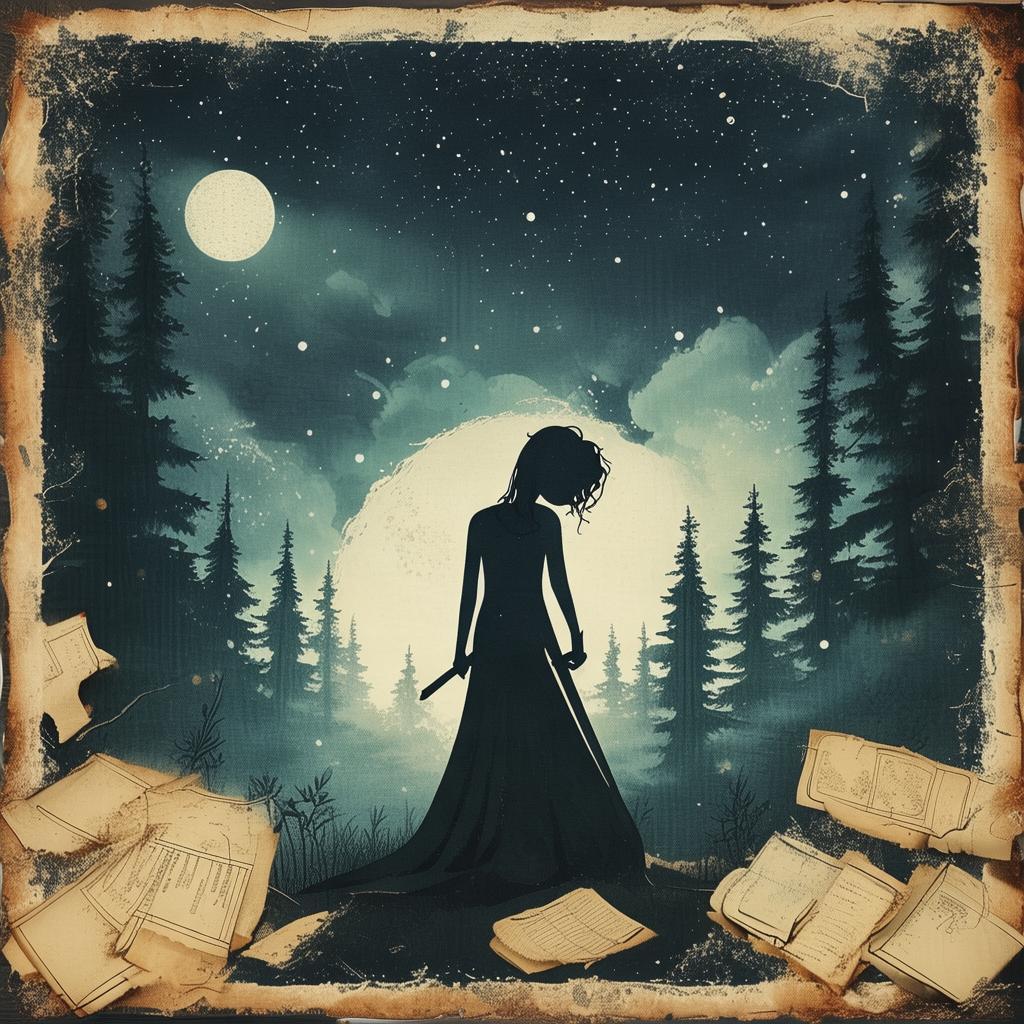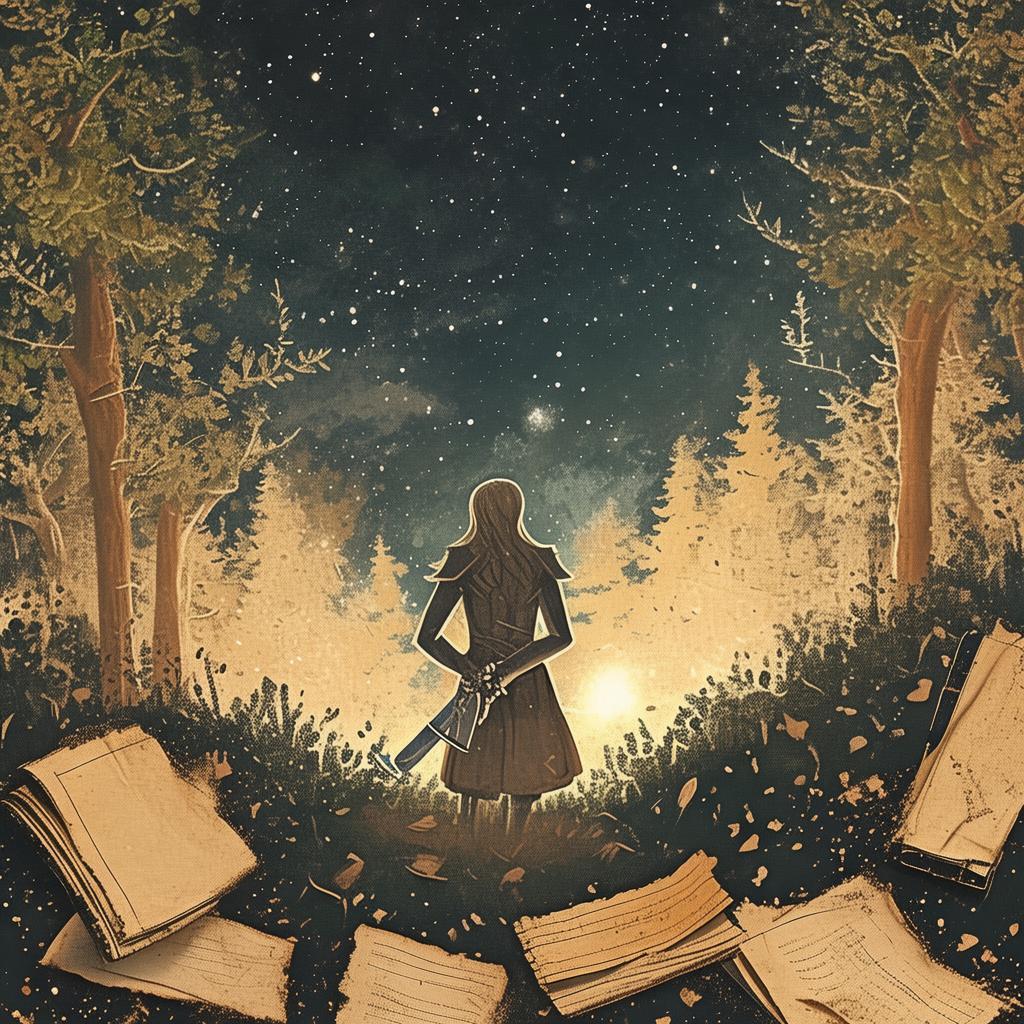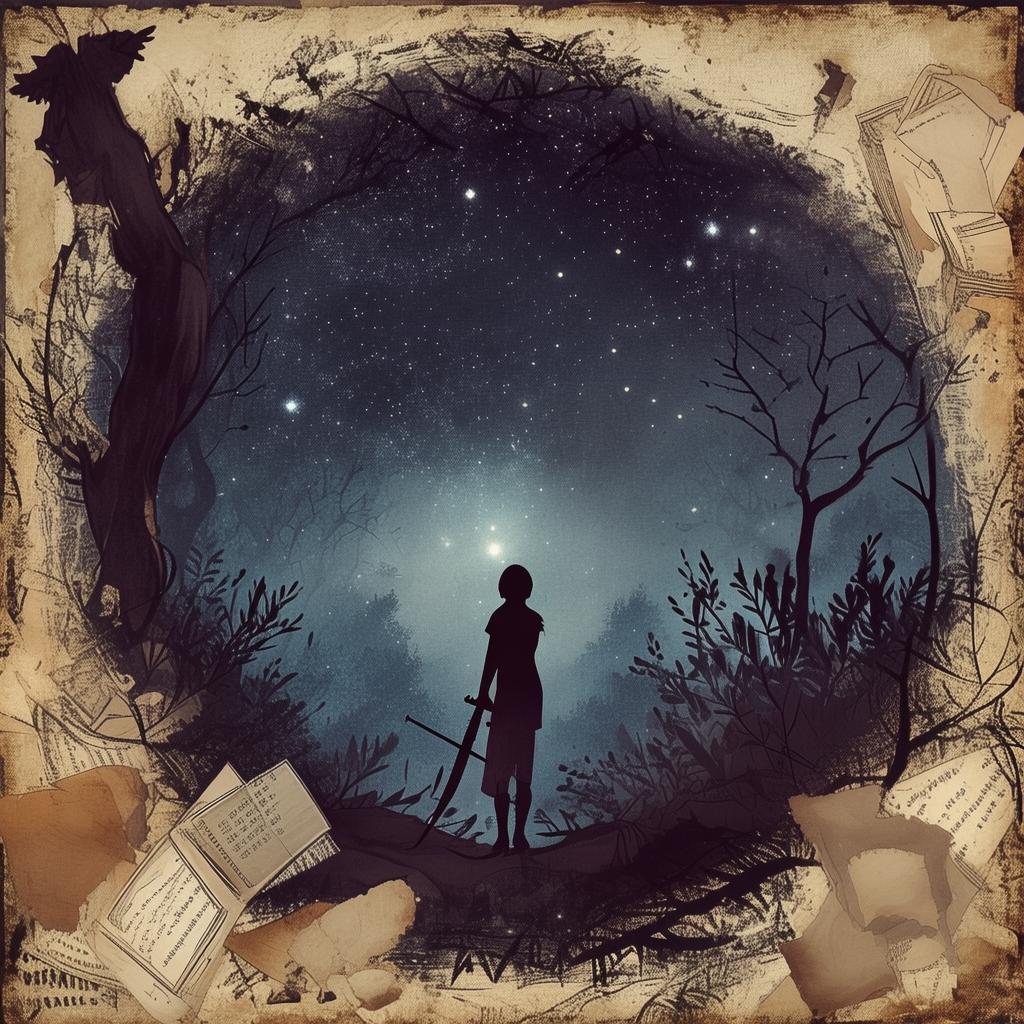Whispers of the Renaissance: The Artist's Dilemma
The sun dipped below the horizon, casting a golden glow over the cobblestone streets of Florence. In the heart of the city, the grandeur of the Renaissance was on full display, with artists and patrons mingling in the bustling squares. Among them was Elara, a young woman with a talent for painting that was as mysterious as it was extraordinary.
Elara had spent her days sketching the beauty of the world around her, capturing the essence of the Renaissance in her works. Her latest masterpiece, a portrait of a noblewoman, was set to be unveiled at the upcoming festival of the arts. The portrait was not just a depiction of the woman; it was a symbol of the power and beauty that Elara herself represented.
As the festival approached, whispers of her talent reached the ears of the city's most influential figures. Among them was Count Cesare, a man known for his discerning eye and voracious appetite for the finer things in life. He was determined to possess Elara's work, and he would stop at nothing to secure it.
One evening, as Elara worked tirelessly on her portrait, a knock came at her door. Standing before her was Count Cesare, his eyes gleaming with a mix of admiration and desire. "Elara," he began, "your art is a marvel. I would like to offer you a proposition. You could have anything you desire in exchange for your masterpiece."
Elara's heart raced. She knew the value of her work, but the thought of giving it up was like selling her soul. She hesitated, torn between the allure of power and the integrity of her art.
"I must consider your offer," she replied, her voice steady despite the turmoil within.
Cesare nodded, his eyes never leaving her. "Of course. Take your time. The festival is but a few days away."
Days turned into nights, and Elara found herself in a web of deceit and ambition. She learned that Cesare was not the only one who sought her masterpiece. The bishop, the cardinal, and even the Medici family had their eyes on the portrait, each with their own reasons for wanting it.
As the festival approached, Elara was approached by a mysterious figure who claimed to be an old friend. He whispered secrets of betrayal and offered her a way out. "The bishop has plans to use your art for his own gain," he said. "He will use it to further his power, and in doing so, he will destroy you."
Elara knew she had to act. She had to protect her work, and more importantly, she had to protect herself. She decided to hide the portrait, but not before creating a copy that she would present at the festival.
The night before the festival, Elara met with the mysterious figure once more. "I have a plan," he said. "We will expose the bishop's true intentions, and in doing so, we will free you from his grasp."
The festival was a spectacle of art and culture, with artists from across Europe showcasing their talents. Elara stood before the crowd, her heart pounding as she unveiled the copy of her portrait. The crowd gasped, their eyes drawn to the beauty before them.
As she spoke of her journey and the secrets she had uncovered, the crowd's attention shifted from the art to the artist. The bishop, in the crowd, was visibly upset. He had been caught, and his plans were thwarted.
Cesare approached Elara as she finished her speech. "You have outsmarted me, Elara," he admitted. "Your art is a force to be reckoned with."
Elara smiled, a mixture of relief and pride. "Art is not just about beauty, Count Cesare. It's about truth and integrity. And in the end, that is what will always win."

The festival ended with Elara's portrait being hailed as a masterpiece, but it was her courage and determination that truly captured the hearts of the crowd. She had protected her art, and in doing so, she had protected herself.
As the sun rose the next morning, Elara stood in her studio, looking at the original portrait. She had survived the treacherous waters of the Renaissance, and her art had emerged stronger than ever. The Renaissance had taught her that beauty and power could coexist, but only if one knew how to wield them wisely.
And so, Elara continued to paint, her brush a testament to her journey through the artful Renaissance.
✨ Original Statement ✨
All articles published on this website (including but not limited to text, images, videos, and other content) are original or authorized for reposting and are protected by relevant laws. Without the explicit written permission of this website, no individual or organization may copy, modify, repost, or use the content for commercial purposes.
If you need to quote or cooperate, please contact this site for authorization. We reserve the right to pursue legal responsibility for any unauthorized use.
Hereby declared.









